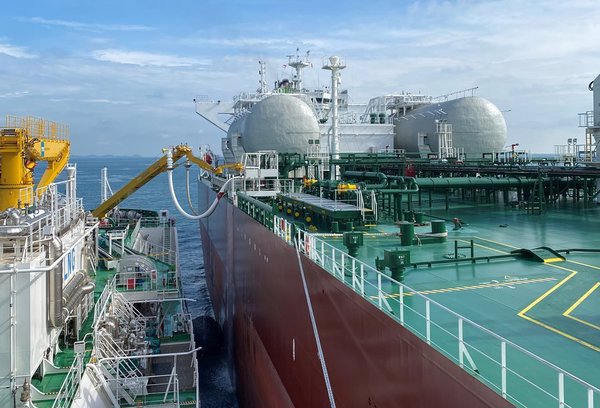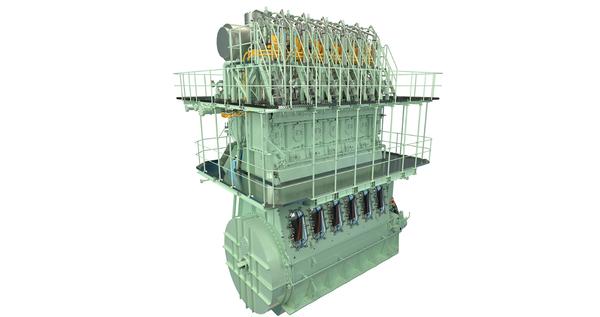Methane emissions must be reduced during shipbuilding – Maersk Mc-Kinney Moller Center
A study published by the Maersk-McKinney Moller Center for Zero Carbon Shipping identifies solutions for reducing onboard methane emissions and reducing the cost of transitioning to low-emission fuels such as LNG, e-methane and biomethane.

PHOTO: FueLNG Bellina delivering LNG bunkers to Aframax tanker Pacific Emerald. MPA
Shipowners are advised to reduce methane emissions during the vessel construction phase to avoid costly modifications later in a vessel's lifecycle.
Newbuilds can cost-efficiently decrease methane emissions by 40-80% compared to existing vessels, which can only reduce them by 20-50% using emission-reduction measures.
As defined in the report, cost-efficiency is the approximate abatement cost for using biomethane that is less than $200/mt of CO2 equivalent.
The report highlights three possible solutions to reduce onboard methane emissions:
- Engine technologies, including high-pressure (direct) methane injection, that have a lower methane than other baseline technologies.
- After-treatment technologies like methane oxidation catalysts and plasma reduction technology.
- System solutions like shaft generators or batteries that can increase engine load and reduce specific fuel consumption, resulting in reduced methane slip.
The report concludes that shipowners must consider a vessel’s total methane emissions and reduce onboard vessel methane emissions. This can render e-methane and biomethane more viable alternative fuel pathways.
By Konica Bhatt
Please get in touch with comments or additional info to news@engine.online






